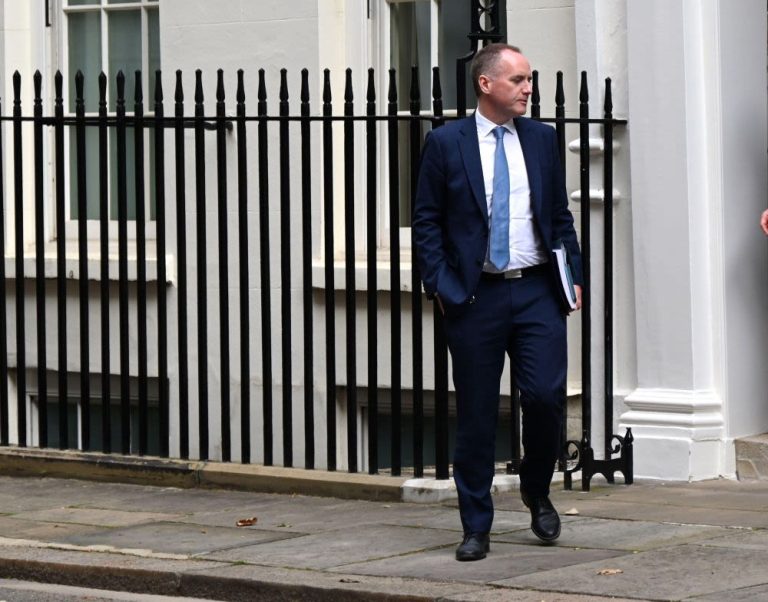
Shakira at Shakira's "Las Mujeres Ya No Lloran" World Tour concert at Metlife Stadium on May 15, 2025 in East Rutherford, New Jersey. (Photo by Stephanie Augello/Variety via Getty Images)
Shakira’s haunting confession: “Constant fear” as an immigrant in the US
In a candid interview with BBC News, global superstar Shakira revealed that life in America for many immigrants means living in “constant fear.” The Colombian-born singer, who moved to Miami at just 19, described how a once-welcoming environment has shifted under new immigration policies, leaving her—and countless others—anxious about their future.
From teenage dreams to a climate of uncertainty
When Shakira first arrived in the United States, she felt embraced by a country that offered opportunity and creative freedom. “I was only 19 when I moved to the US, like many other Colombian immigrants who come to this country looking for a better future,” she explained. However, as political winds have changed—particularly under former President Donald Trump’s administration—she now finds herself worried about being targeted by stricter immigration enforcement measures.
“Being an immigrant in the US today means living in constant fear, and it’s painful to see,” Shakira told BBC News. Her words resonate deeply at a time when ICE raids and policy overhauls have made headlines across the nation, raising concerns about due process and human rights.
Protests, raids and the National Guard
Shakira’s remarks come amid widespread protests against recent ICE crackdowns on workplaces in Los Angeles. In early June, federal agents conducted raids at several distribution centers, allegedly targeting undocumented workers. The backlash prompted authorities to deploy the National Guard to assist with enforcement and control public demonstrations—an unprecedented move that intensified tensions.
Musicians and activists have joined the outcry. Finneas, best known for his work with sister Billie Eilish, revealed that he was tear-gassed while peacefully demonstrating in LA. Tom Morello of Rage Against The Machine and Billie Joe Armstrong of Green Day have publicly criticized ICE operations, urging solidarity with affected communities.
A call for unity and humane treatment
Against this backdrop, Shakira urged collective action. “Now, more than ever, we have to remain united,” she said. “We have to raise our voices and make it very clear that a country can change its immigration policies, but the treatment of all people must always be humane.” Her plea underscores a belief that policy shifts should never compromise basic compassion and dignity.
Artists speaking out: solidarity in song and protest
The music world has rallied behind calls for humane immigration reform:
- Finneas posted images of tear gas canisters and implored fans to stand against oppressive tactics.
- Tom Morello joined protests in LA, declaring on social media that “defending human rights is non-negotiable.”
- Billie Joe Armstrong bluntly told ICE to “fuck off,” expressing solidarity with detained workers.
- Khaby Lame, TikTok’s biggest star, reportedly fled the US after immigration authorities detained him, illustrating the reach of enforcement actions.
Shakira’s world tour shadowed by political unrest
At the same time, Shakira is busy touring her sold-out Las Mujeres Ya No Lloran world tour across North and South America. Despite packing stadiums, the tour has faced its own challenges: safety concerns forced her to postpone a show in Medellín, and a medical issue in Peru led to the rescheduling of a Lima performance. Most recently, she fell on stage in a high-profile mishap and cancelled a WorldPride show in New York City, as well as a concert in Houston due to unexpected illness.
Even as she delivers chart-topping hits and electrifying performances, her offstage reality—living under immigration uncertainty—remains a constant weight on her mind.
Intersection of fame and policy
Shakira’s story highlights the complex intersection between celebrity and citizenship. As a naturalised permanent resident, her platform gives voice to millions who lack the luxury of public support. Her message is clear: legal reforms must progress hand in hand with respect for human dignity, regardless of nationality.
Her advocacy resonates far beyond the concert halls, reminding us that behind every policy debate lies the lived experience of real people. Shakira’s plea is not just for herself, but for all who seek safety, opportunity and acceptance in the world’s most influential immigration battleground.





